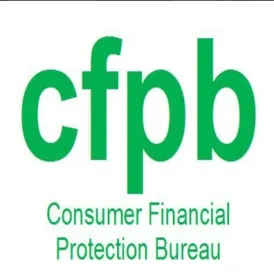Four consumer advocacy groups have filed a motion seeking leave to file an amicus memorandum opposing the joint motion filed by the CFPB and two trade groups that seeks a stay of the compliance date for the CFPB’s final payday/auto title/high-rate installment loan rule (Payday Rule). The joint motion, which was filed in the trade groups’ April 2018 lawsuit challenging the Payday Rule, also seeks a stay of the litigation for the duration of the CFPB’s rulemaking to reconsider the Payday Rule.
The four consumer advocacy groups are Public Citizen, Inc., Americans for Financial Reform Education Fund, Center for Responsible Lending, and National Consumer Law Center. They assert in their motion that because the stay was sought jointly by the parties to the lawsuit, “the Court lacks the benefit of adversarial briefing on the parties’ request.”
The joint motion filed by the CFPB and trade groups seeks a stay of the Payday Rule’s compliance date pursuant to Section 10(d) of the Administrative Procedure Act, 5 U.S.C. section 705, which provides:
When an agency finds that justice so requires, it may postpone the effective date of action taken by it, pending judicial review. On such conditions as may be required and to the extent necessary to prevent irreparable injury, the reviewing court … may issue all necessary and appropriate process to postpone the effective date of an agency action or to preserve status or rights pending conclusion of the review proceedings.
In the proposed amicus memorandum accompanying their motion, the consumer advocacy groups argue that Section 705 cannot be properly invoked by the CFPB and trade groups to stay the Payday Rule’s compliance date for the following reasons:
-
For the court to stay the compliance date while also staying the litigation is at odds with the purpose of Section 705 “to stay agency action for the purpose of maintaining the status quo during judicial review.” The CFPB and trade groups are not seeking to maintain the status quo to protect against litigation uncertainties but rather to address uncertainties created by the CFPB’s decision to engage in rulemaking to reconsider the Payday Rule. Section 705 “cannot properly be used as the basis for a stay where the parties are not litigating and have no intention to do so.”
-
The joint motion is an “attempt to jerry rig non-adversarial litigation to effect an end-run around the [Administrative Procedure Act’s] statutory requirements.” An agency ordinarily can only delay a rule’s compliance date through the APA’s notice-and-comment rulemaking procedures.
-
The same four-part test used to assess requests for stays pending appeal applies to Section 705 stays. The joint motion does not satisfy this test because:
-
Little effort was made to show any likelihood of plaintiffs’ success on the merits in their challenge to the Payday Rule
-
No showing was made that the plaintiffs would suffer irreparable injury absent a stay pending review, with no actual information provided “as to whether any individual member of the plaintiff associations intends to spend money on compliance with the Payday Rule before the date when this lawsuit—if it were litigated—could reasonably be expected to end.”
-
No consideration was given to the impact of their request on the CFPB, which would include “bind[ing] the agency and its next director, based on the request of an acting director, who only serves temporarily and at the pleasure of the president.” (emphasis included).
-
No analysis was provided of how a stay would impact the public interest, such as “the impact of a stay on the consumers who the Payday Rule intends to protect.”
-
The consumer advocacy groups’ motion states that the trade groups have indicated that they oppose the filing of the amicus brief and that the CFPB has indicated that it takes no position on whether the amicus brief should be filed. We would therefore expect the trade groups to file a response opposing the motion. Once the court rules on the consumer advocacy groups’ motion, the next step would be for the court to decide the joint motion for a stay either after a hearing or without holding a hearing.



 />i
/>i

